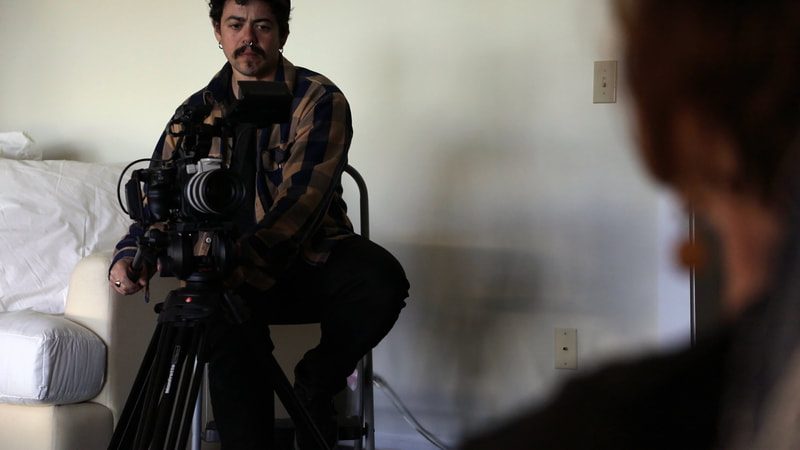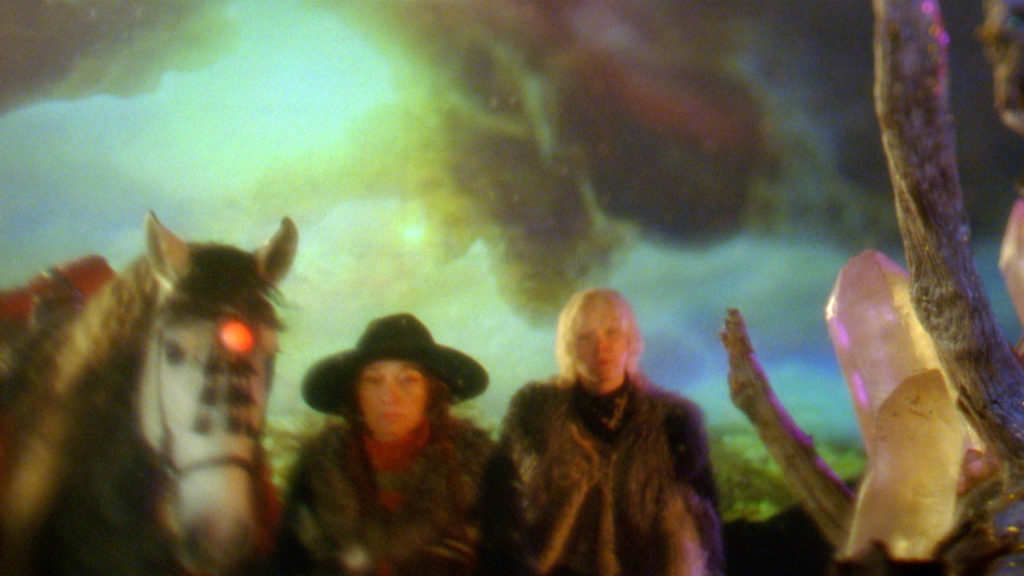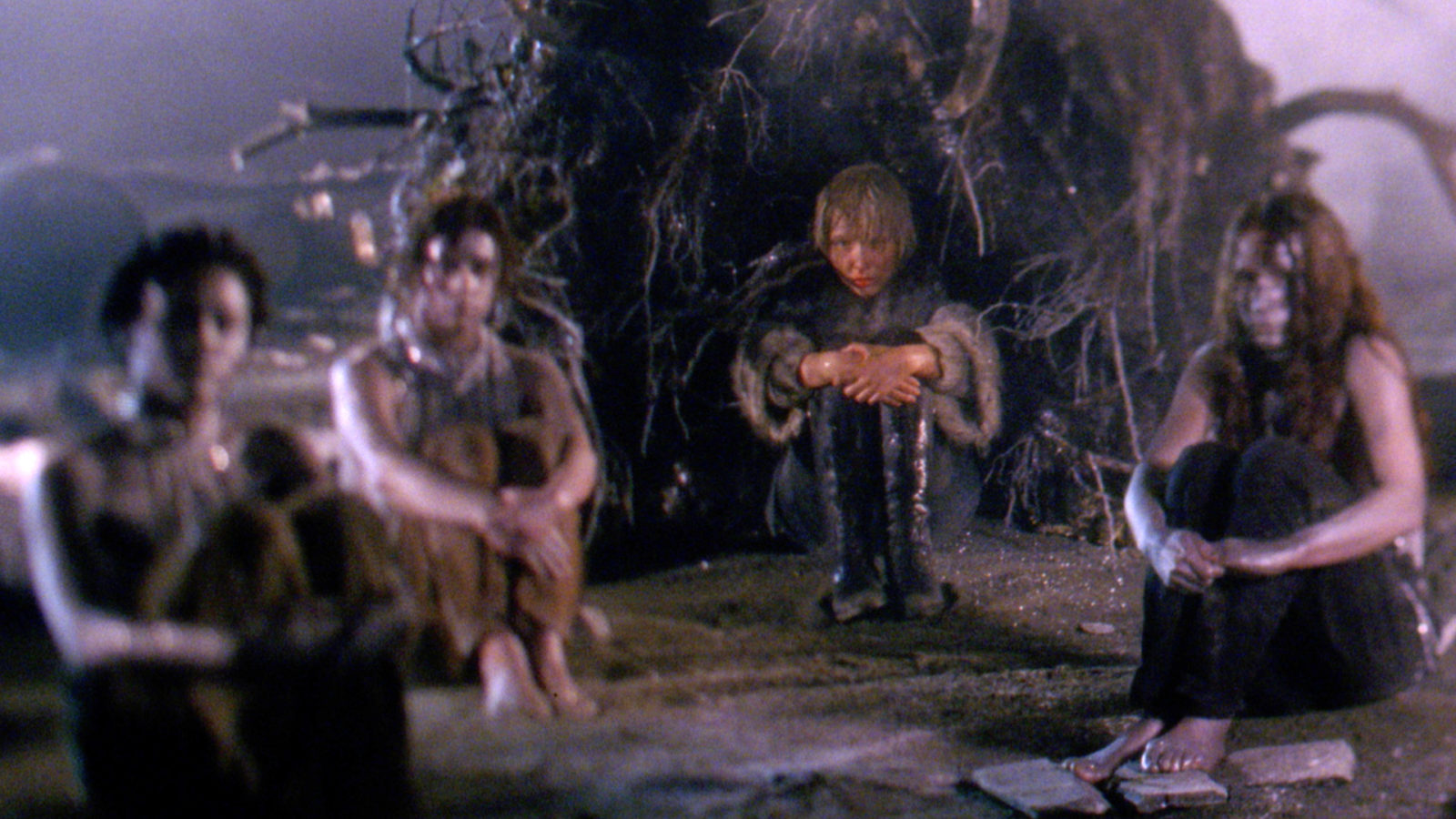Each month, SPACE Film Programmer Greg Jamie explores the content and connections between our upcoming films. You can find Greg’s commentary below, as well as stills and trailers for each of this month’s films. We hope to see you at one of these brilliant films soon!
If the June films at SPACE have a theme, it is Visionaries. Each of the films we are presenting at SPACE in June are from visionary directors who utilize the cinematic medium to express their singular perspectives in wholly disparate ways. These are films that subvert our expectations as viewers and ask us to engage in ways that are all too rare. These each are smart films, with strong directorial voices, and as visionaries are works that look toward the future.

First up, on June 9 we are presenting a long overdue Portland debut screening of the heavily lauded documentary North By Current, from Angelo Madsen Minax- who will be here in person for a Q+A after the film. This is such a unique and deeply personal work, and we are so happy to be able to show it here, where the director once was an artist in residence. It’s a film willing to explore and pivot, to seek familial transformative justice, and as Minax expresses in his director’s statement, a film that “examines what it means to be a body moving through time”. What Minax chooses to share and chooses to exclude are important distinctions, but this is unquestionably a very generous film. It’s ostensibly a film about the inconclusive cause of death of Minax’s niece, but exists simultaneously as a lyrical rumination on how our familial relationships evolve, how our roles are defined(to each other and to ourselves) and the desperate need to break destructive cycles.
The film is heartbreaking, as it is sometimes funny, playing with conventions, casting the family as themselves and sometimes asking them to address the most tragic parts of themselves. It’s a film that needs to be seen multiple times and we hope that one of those times will be here for free on Thursday June 9. There is a kind of bravery in this film’s existence and you feel lucky to witness it all. I’m also struck at its use of medium- super 8, hi 8, digital video, vhs, home footage, staged footage, interviews, internal monologue, verite- it utilizes any and all available format to get at truth- which makes for the best kind of documentary experience.

Another film that we’re showing that utilizes the cinematic medium in unconventional ways is the very stylized, hyper-genre excursion into madness that is After Blue (Dirty Paradise). It is a surrealist futuristic sci fi western that takes place on a planet where only women are able to survive. Its a film that is dystopic, illogical, erotic, and alternately dispassionate and deeply emotional. Clearly going for a kind of avant- maximalism rarely witnessed, Bertrand Mandico is the director and his voice is unrestrictedly present in every frame. And while it is campy, it never does feel like a throwback. The planet that is created, the set design, the costumes and makeup- it all feels so fully realized so deeply odd and so unquestionably queer. Mandico explains that the film is a kind of ‘ecological-fable’ in which the planet of After Blue is colonized after a sickness on Earth. Naming things feels oddly important here- the main character is named Roxy but is nicknamed Toxic, and unleashes an evil killer named Kate Bush, who she is passionately connected to, but must attempt to hunt down with her hairdresser mother, Zora.
This is a film that plays with or mocks our notion of rules- of the binary, of film genre, of good and evil- and embracing it, and giving into its world feels almost dangerous. After Blue dares you to take it seriously and is willing at times to play the role of the clown for you. It can be funny, violent, sexy or gross but one of its more intriguing features is its duration. After Blue is a world deeply lived in, and it doesn’t let you escape easily. Perhaps thats another way of saying it “overstays its welcome” as some reviews suggest but I’d prefer to say it inhabits itself, and you come out the other end hypnotized.

Throwing out notions of genre and conventional storytelling altogether, Neptune Frost– which we are showing on June 24 and 26- is one of the most singular visions you will see. It is a rhythmic and profound Afrofuturist musical from the minds of Saul Williams and Anisia Uzeyman. It’s hard to talk about the film without discussing its stunning imagery, costumes, music, make-up and set design.
The film is very much about de-colonizing technology, building a stronger community through collective resistance, rejecting notions of the binary by way of existing for the future, and claiming what is yours. A beautiful,hard to pin down, glitchy experiment where all of the pieces add up to a greater whole.

The final film we’re showcasing in June (on June 29th) is called Flux Gourmet, and is from director Peter Strickland who brought us Duke of Burgundy some years ago. Flux Gourmet is a unique brand of dark-comedy that focuses on notions and origins of creativity, and how that taps into something guttural. The film takes place at an artist residency that focuses on collectives that create performance art about sound and food- and how those elements connect. While its perspective shifts throughout the film, our primary guide is a gentleman with gastrointestinal issues whose role is to document the residents. He finds a kind of redemption by embracing his personal setbacks and turning them into art.
At times the film feels like a gentle roasting of art collectives, colonies, performance, and experimental noise but is all done in a humanistic way that recalls Fassbinder or the best of Peter Greenaway. But there’s also something there about the boldness of the vision being bound to an artist’s ability to sacrifice their ego. There’s a brutal, exploratory quality to the film, and its ideal audience might just be from another planet.

